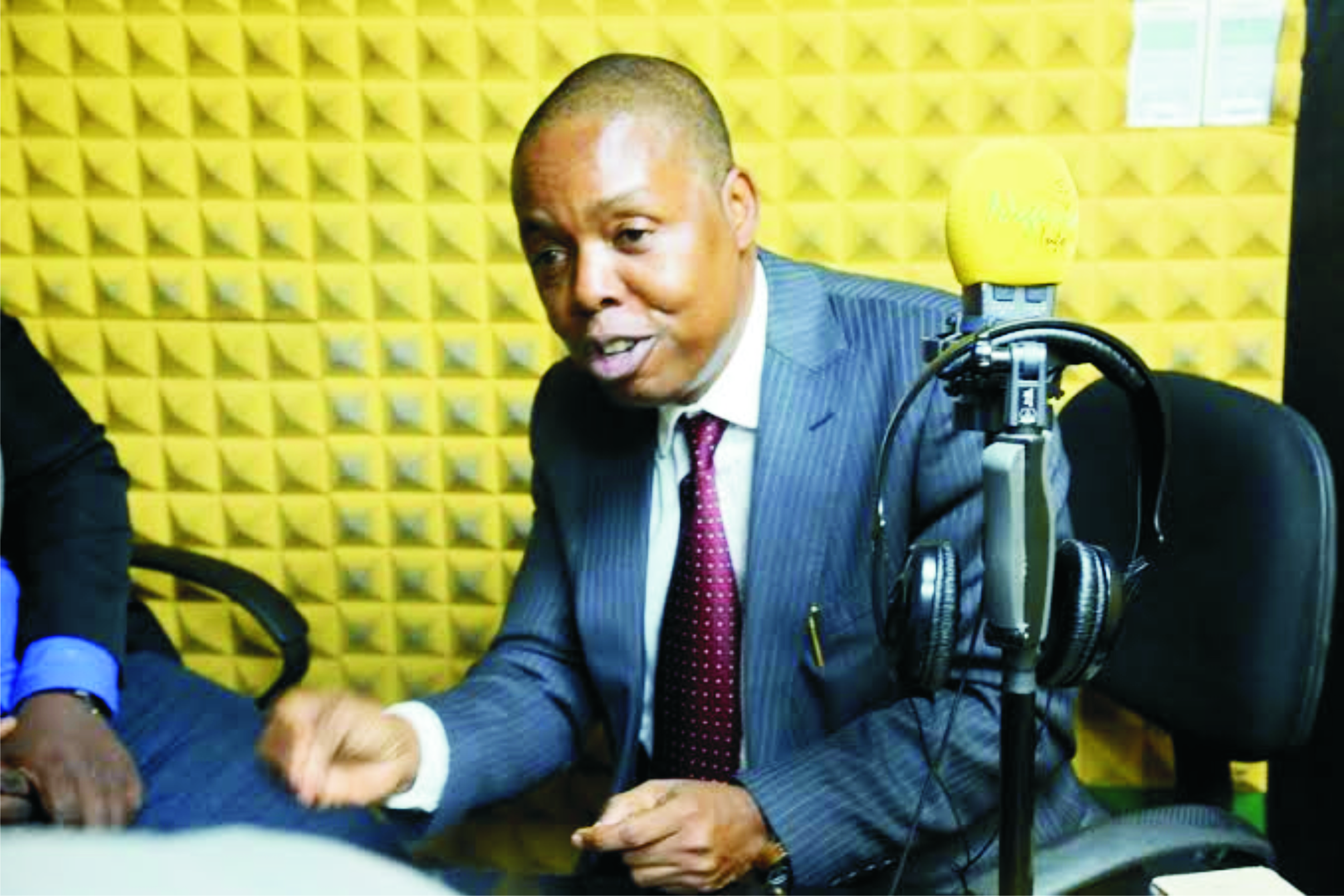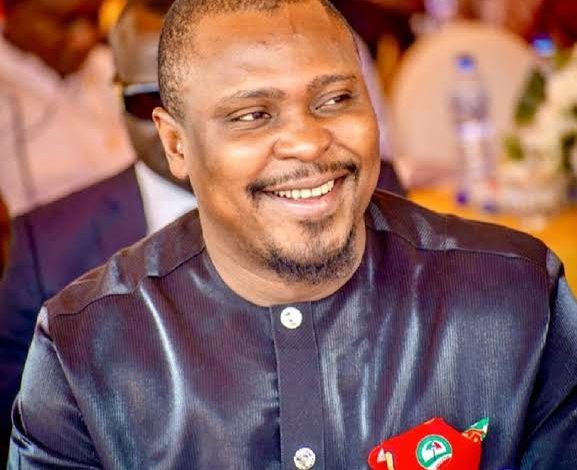News
Minimum Wage: Labour Carpets Govs On Consequential Adjustment

The organised labour, yesterday, said the revenue of state governments would determine the consequential adjustment on the new minimum wage it would accept.
Reacting to a comment by the Chairman of the Nigerian Governors Forum (NGF), Dr Fayemi Kayode, that the agreement between and organised labour on consequential adjustment of the N30,000 minimum wage was not binding on state governments, the Joint National Public Service Negotiating Council (JNPSNC), Comrade Simon Achaver, said labour would rely on the revenue accrued to each state in determining what it should pay.
It would be recalled that the NGF Chairman and Governor of Ekiti State, Dr Kayode Fayemi, had said last Monday while briefing reporters at the end of a meeting of the 36 state governors at Transcorp Hilton Hotel, in Abuja, that agreement and directive on consequential adjustment apply only to federal workers.
“I am sure you know the FEC does not determine what happens in the states, the states have their own state executive councils and that is the highest decision-making body at the state level.
“The forum (NGF) as the representative body of the states followed what happened in the negotiations that transpired. As far as we are concerned, the best that the forum can do is stick to what has been agreed with states.”
Fayemi said while the state governments have accepted the N30,000 baseline, each would negotiate with its workers on the implementation and the consequential adjustments.
“States were part of the tripartite negotiation and agreed to N30,000 minimum wage. But states also know there will be consequential adjustments. That would be determined by what happened on a state-by-state basis because there are different numbers of workers at the state level, there are different issues at the state level.
“Every state has its own trade union, with a negotiating committee and they would undertake this discussion with their state government. That is simply what we have said”, Fayemi added.
However, in a chat with newsmen, yesterday, Achaver said the revenue of a state would be the main factor on the rate of consequential adjustment it agrees with such a state.
“Since it is a law, the state government must pay, first and foremost, they should declare how much they are collecting from their respective state revenue then we will know if it is commensurable to pay minimum wage,” he said.
He added that “once they (state governments) disclose their revenue, they can negotiate and that should be supervised by the national officers so that we can avoid situations where some labour leaders will be in the hands of the state government”.
According to him, “a meeting of National Joint Council 1, 2, 3 will hold on November 5, and we will address the joint councils at the various states. We will give them templates that will guide them on the implementation.
“We are ready for shut down, if any of the agreements is breached,” he warned.
Achaver’s position was reiterated by the General Secretary of the Nigerian Labour Congress (NLC), Comrade Emma Ugboaja.
In an interview with newsmen, yesterday, Ugboaja said no state could discard the fact that a minimum wage of N30,000 would be at the centre of every negotiation.
“Everybody will negotiate differently based on the state economy but what is sacrosanct is the minimum wage of N30,000 and how that will be adjusted across the board is the function of collective bargaining between the workforce and government,” he said.
President Muhammadu Buhari signed the new minimum wage bill into law on April 18.
But its implementation had been stalled over salary adjustments and disagreement between the labour unions and government representatives.
Specifically, the problem centred around the issue of relativity and consequential adjustments of salaries for various categories of workers.
The Federal Government then argued that the minimum wage was for junior-level workers (levels 1 to 7) and that salary increase for other categories of worker would have to be negotiated.
On May 14, the Federal Government inaugurated the relativity and consequential adjustment committee, which set up a technical subcommittee to work out a template for the adjustment of salaries of public service employees in line with the minimum wage law.
The controversy was resolved between both parties on October 18, following which FEC approved the implementation.
The Labour Minister, Dr Chris Ngige, announced details of the agreement to journalists.
“For COMESS wage structure, Grade Level 7 gets 23 per cent, Salary Grade Level 8 gets 20 per cent, Salary Grade Level 9 gets 19 per cent, Salary Grade Level 10 -14 gets 16 per cent while Salary Grade Level 15-17 gets 14 per cent,” he said.
“For those on the second category of wages structure, CONHES, CONRRISE, CONTISS etc, Level 7 gets 22.2 per cent, Level 8-14 gets 16 per cent, Level 15-17 gets 10.5 per cent,” he added.
Speaking on behalf of the union, the President of the Nigeria Labour Congress after reaching the agreement, Ayuba Wabba, said both parties participated in the process and made input.
“We want our workers to be committed and increase productivity. The guideline will be transmitted to all state councils and they will work in harmony as well as TUC and NLC will work together,” he said.
The Federal Government and labour on October 18 announced an agreement on the implementation of the new wage.
The agreement over consequential adjustments averted a strike that labour had threatened to call should government further delay the take-off of the new minimum wage.
The Federal Executive Council (FEC) at its meeting, last Wednesday, presided over by Vice President Yemi Osinbajo approved the agreement and set dates for the take-off of the new wage and payment of the arrears.
FEC directed that the payment of the new salary structure should take effect from April 18 and the arrears cleared by December 31.
News
Bonny-Bodo Road: FG Offers Additional N20bn, Targets December Deadline

The Federal Government has agreed to offer additional N20.5 billion for the completion of the Bonny-Bodo road project in December.
The government, however, said if the construction company, Julius Berger, was not ready to accept the offer, the contract will be terminated.
Minister of Works, David Umahi, said this during a meeting with the Managing Director of Julius Berger, Lars Ritcher and members of Bodo-Bonny Road Peace Committee, on Wednesday in Abuja.
The reports that Julius Berger had requested asking for a N28 billion variation on the 82 per cent completed project.
The company hinged its request on the rise in exchange rate, construction materials, and diesel among others.
Umahi, however, said the government was willing to provide N20 billion out of the N28 billion that Julius Berger requested for.
According to him, the Bonny-Bodo road contract which was initially awarded at the cost of N120 billion in 2015, was later varied at N199 billion with a completion dateline of December 2023, which has since elapsed.
The Tide’s source recalls that in 2017, an agreement between the Federal Government, Nigeria Liquefied Natural Gas (NLNG) and Julus Berger on modalities for funding the project cost of N199.923 billion, without any further increase.
“If you do not accept the Federal Government’s offer by Friday and resume work on the site, the previously expired 14-day ultimatum for termination of project will be enforced.
“I want to let you know that we are the client. No contractor will dictate for this ministry, and there is no job that is compulsory that a particular contractor must do.
“We give you an offer. If you do not like the offer, you walk away. You don’t force us or we don’t force you.
“Agreement of contractual relationship is a mutual understanding,’’ the minister said.
Umahi said that had Julius Berger adhered to the project timetable, the project would have been completed on schedule before the impact of foreign exchange.
“Our position is very simple, we reject the conditions of Julius Berger totally and we ask Berger to please go back to the site to complete the project based on our offer.
“Our offer is unconditional and we say, accept or reject, so you cannot subject our offer to your conditions ,’’ he added
Umahi said the company should be humble in its dealings and exhibit solidarity during challenges.
Earlier, Richter had explained that the company suspended work on the site to seek some clarifications from the ministry.
According to him, the company asked for the augmemtation of N28 bilion because as at the time the contract was awarded the exchange rate was N305 to a dollar and diesel was N350 eor litre.
“We will still require some outstanding materials; that means that the initial agreement can’t fly because the variation of project is not sufficient and the exchange rate is also not in our favour to compensate the additional costs.
“That is why we decided to go back to our original proposal of the augmentation. Augmentation is a very normal process for all contracts,” the managing director said.
Chief Abel Attoni, Palace Secretary, Bonny Kingdom, expressed gratitude to President Bola Ahmed Tinubu over the decision to complete the Bodo-Bonny road project.
Attonu urged the parties to be patriotic and make the necessary sacrifice for the actualisation of the project.
News
Court Vacates Arrest Warrant Against Ehie, Five Others

The Federal High Court, sitting in Abuja, yesterday, set aside the warrant of arrest against Rt. Hon. Edison Ehie, the Chief of Staff, Government House, Rivers State, and five others.
Justice Emeka Nwite stated this while delivering his ruling in an application seeking to vacate the warrant of arrest which he issued on January 31, 2024.
The Judge said he was misled by the police in ordering the arrest of Ehie in connection with the burning of the Rivers State House of Assembly on October 30, 2023.
The Police, had told the court that Ehie and five others masterminded the bombing of the Rivers State House of Assembly amid a plot to impeach Rivers State Governor, Siminalayi Fubara.
The five others are Jinjiri Bala, Happy Benedict, Progress Joseph, Adokiye Oyagiri, and Chibuike Peter, alias Rambo.
Justice Emeka Nwite while setting aside the warrant said it has now become a mere academic exercise.
The judge further granted same to the 2nd to 5th Defendant/Applicant in same suit.
Femi Falana, SAN, and Oluwole Aladedoye, SAN, who appeared for the defendants in separate suits, held that the court lacked the jurisdiction to have granted the order.
While Falana filed a motion seeking an order to set aside the January 31 order by Justice Nwite, Aladedoye applied for a stay of execution of the arrest order.
In a motion marked: FHC/ABJ/CS/112/2024 dated February 2 and filed on February 7 by Falana, Ehie sought two orders, including “an order setting aside the order made on January 31 for want of jurisdiction.
“An order of this honourable court staying the execution of the order made on the 31st January 2024, pending the hearing and determination of this application.”
Giving six grounds of argument, Falana argued that the complainant had not filed any criminal charge or motion before the court.
The senior lawyer argued that the court lacked the territorial jurisdiction to entertain the ex-parte application as the alleged offences of conspiracy, attempted murder, murder and arson took place in Port Harcourt, the state capital.
“He submitted that the court lacked the vires to grant an application to arrest and declare his clients wanted in respect of the alleged offences.
“The complainant/respondent (IG) did not adduce evidence of terrorism in the affidavit in support of the application.
“The complainant/respondent did not cite any section of the Terrorism Prevention Act, 2013 (as amended) alleged to have been contravened by the applicants,” he argued.
Aladedoye in a motion on notice dated and filed February 9, on behalf of the five defendants, sought two orders, including
“an order staying execution or further execution of the order(s) of this honourable court made on the 31st of January, 2024, pending the hearing and determination of the appeal filed by the applicants.
“An order of injunction restraining the complainant from carrying out or further carrying out the orders of this honourable court made on the 31st January 2024, pending the hearing and determination of the appeal filed by the applicant in this case.”
Giving a three-ground argument, Aladedoye said that a notice of appeal had already been filed against Justice Nwite’s orders.
According to the senior lawyer, the notice of appeal contains grounds that challenge the jurisdiction of the honourable court.
The Inspector-General had, in a charge marked: FHC/ABJ/CR/25/2024, arraigned the defendants on a seven-count criminal charge bordering on terrorism and murder.
News
13 Students Bag First Class, 182 PhD As IAUOE Graduates 5,550, Today
The authorities of Ignatius Ajuru University of Education (IAUOE), Rumuolumeni, in Rivers State, have stated that 13 students will be graduating with first class while 182 graduands will bag Ph.D during the 42nd convocation ceremony of the university billed to hold today and tomorrow.
The Acting Vice Chancellor of the University, Prof. Okechuku Onuchuku, disclosed this during pre-convocation press briefing held in his office, yesterday, to unveil the programme for the convocation ceremony.
Onuchuku said that the 13 students were among the 4,653 graduands expected to graduate for the 2022/2023 academic session with first degree, while 897 students will be graduating with postgraduate degrees.
The Acting Vice Chancellor while giving the breakdown stated that 13 students made first class, 890 students bagged second class upper while 2,739 students had second class lower for first degree.
He further stated that 182 graduands bagged PhD, 667 got master’s degree and 48 got postgraduate diploma, adding that the convocation ceremony will hold today and tomorrow for first degree graduands and postgraduate graduands respectively.
He said that a total of 47 programmes out of the 54 programmes being undertaken at the first degree levels had been given full accreditation by the National University Commission (NUC) as well as all the programmes at the postgraduate school.
“We have ensured that our programmes both at the first degree and post graduates are in line with the NUC stipulated guidelines and speculations. We have also ensured that we are in line with both our academic and administrative policies,” he said.
Prof. Okechukwu urged the graduating students of the institution to always remember to use thier positions to help their alma mater as well as project the institution in a good image in the larger society.
“Try to ensure you finish any project you want to do, evaluate it first and avoid unfinished or abandoned projects. We will be graduating first degree graduands on Friday while Saturday will be for postgraduates, “he added.
Prof. Onuchukwu also said his administration had achieved a lot since he assumed office as Acting Vice Chancellor, stressing that his administration had improved on the welfare of the staff and the students.
“There are a lot of projects completed in the school; we have also given scholarship to some students and also encouraged departments to do same. We also impacted positively on our host communities”, he said.
Akujobi Amadi
-

 News5 days ago
News5 days agoFG To Launch 2,700 CNG Buses, Tricycles Before May 29
-
News1 day ago
Shops Allocation: Fear Not, Gov Fubara Assures Mile One Market Traders
-
Nation23 hours ago
Customs Intercepts Over 6,000 Explosives In Kebbi
-

 Maritime5 days ago
Maritime5 days agoTinubu, Others To Honour Global Transport Roundtable
-

 Focus5 days ago
Focus5 days agoRe-Igniting Rivers Agricultural Stakes
-
Niger Delta24 hours ago
APC S’South Executives Strategise For Victory
-
Business23 hours ago
Empty ATMs: ‘Entrepreneurs, Customers, Banks, PoS Operators Accountable’
-

 Politics5 days ago
Politics5 days agoBayelsa Assembly Grills, Confirms Diri’s Commissioner- Nominees

